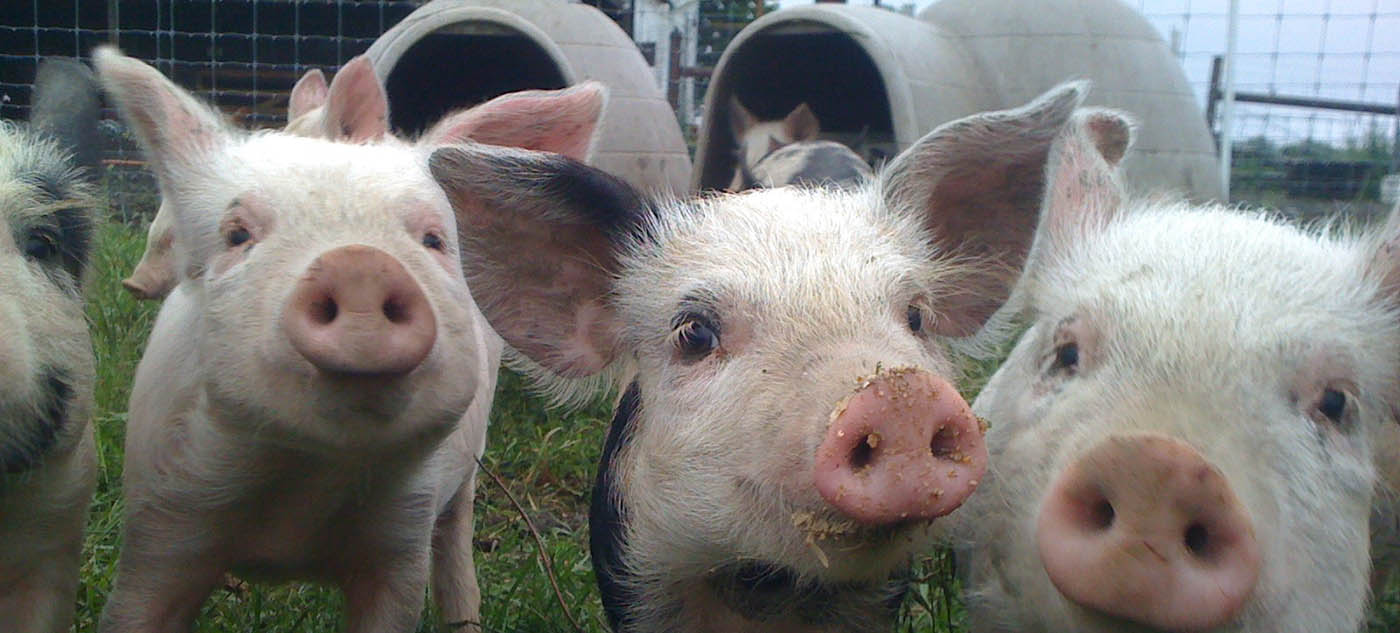Humane Farming
Shannon Brook Farm is invested in humane farming and provides all our livestock, poultry, livestock guardian dogs and barn cats with a high level of care each and every day. In conjunction with our pursuit of humane farming the farm was certified organic within the first year of operation. Organic certification requires that the animals are fed certified organic feed free of pesticides, herbicides, fungicides, antibiotics and growth hormones. The animals must have clean water, outdoor access and clean, dry bedding and have ample nesting and roosting areas that are protected from inclement weather in addition to a whole host of other requirements.
Every day our number one priority is to get out and check on the flocks of birds, the herds of pigs , the flock of sheep, the cattle, the livestock guardian dogs and the barn cats. We carefully check for injuries, illness and their general well-being.
Prior to starting our farm we researched local veterinarians to find a good match. We were very fortunate to locate our veterinarian as she is enormously talented, endlessly energetic and is dedicated to the care of sheep and goats, pigs, cattle, poultry, dogs and cats. Her approach to animal husbandry is to educate the farmer as to the best way to care for various animals and how to manage urgent situations to alleviate any distress an animal is experiencing while pursuing a positive, long term outcomes. Investing in our relationship with our veterinarian prior to day one of the farm is one of the best investments we have made. She has become a trusted and important friend of the farm.
In the past three years Shannon Brook Farm has been awarded three Humane Farming Grants by Food Animals Concerns Trust (F.A.C.T.). The organization, based in Chicago, awards grants across the country to farmers who are actively working to improve the quality of life for their farm animals.


